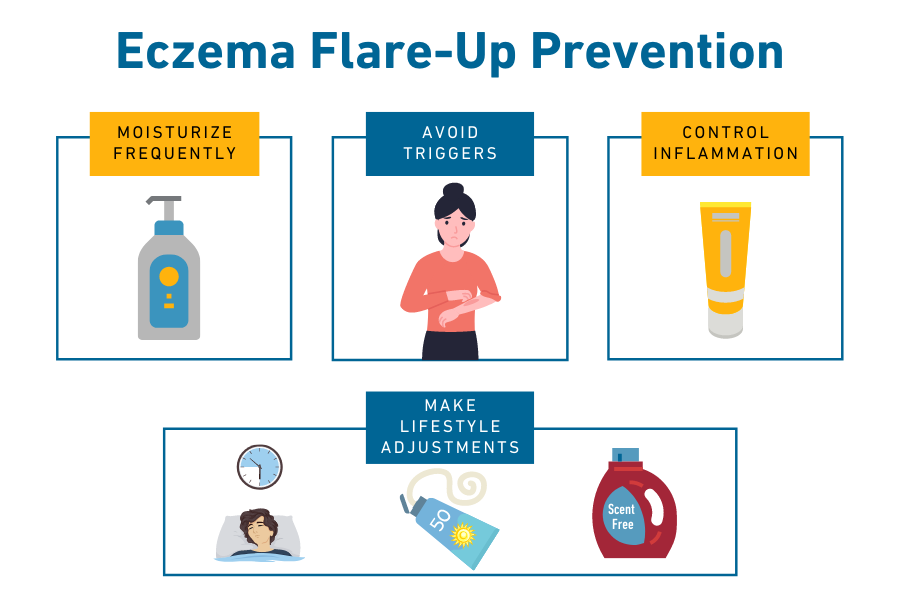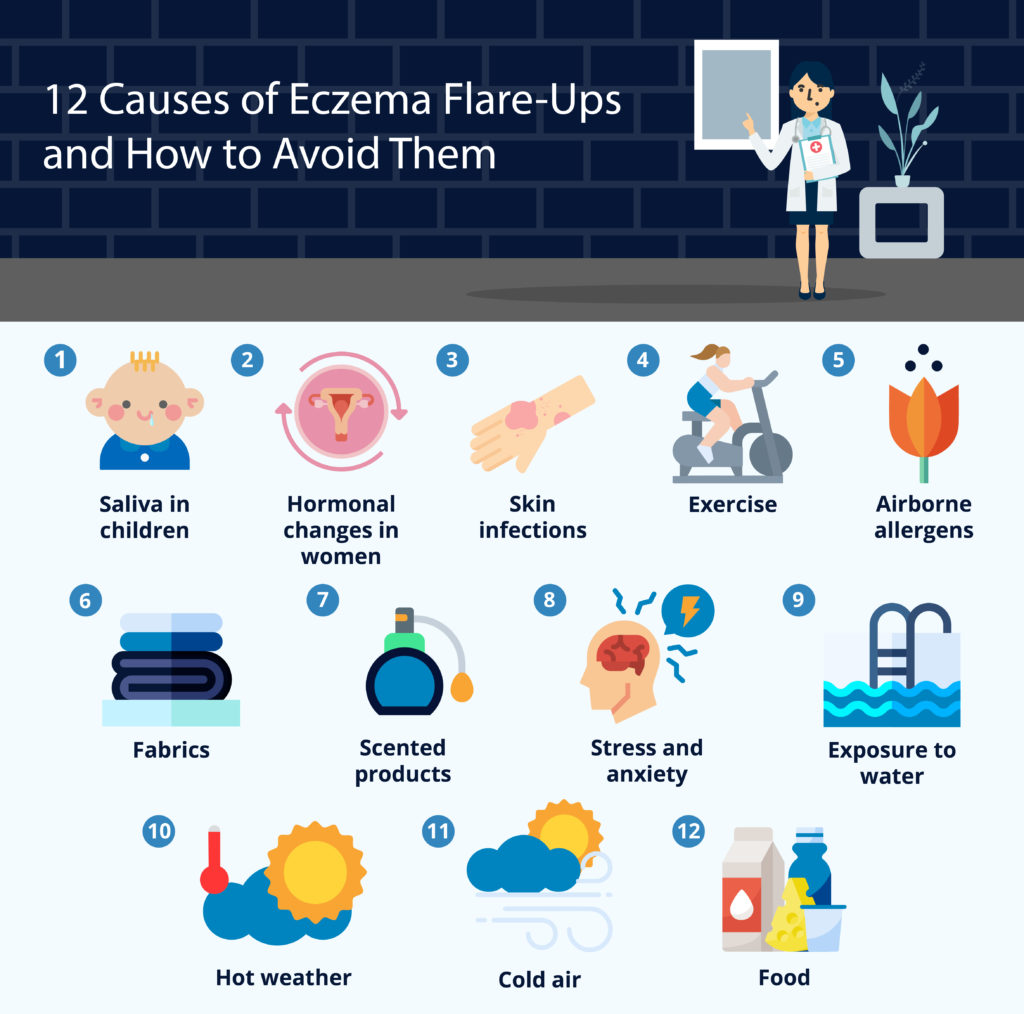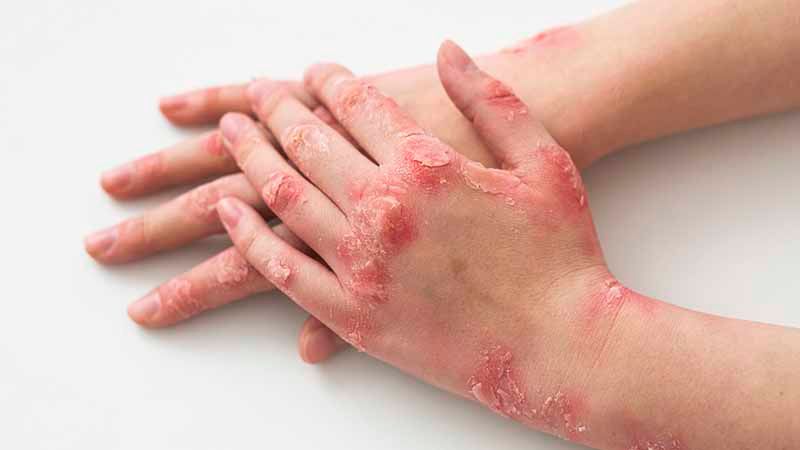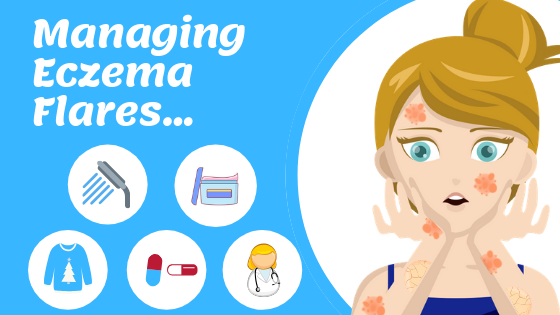If you’ve ever experienced the red, itchy, and inflamed skin caused by eczema, you know how frustrating it can be. But fear not, because we have some practical strategies to help you prevent those pesky flare-ups. From moisturizing regularly to avoiding triggers, we’ve got you covered with simple yet effective tips that will leave your skin feeling calm and comfortable. So say goodbye to the discomfort and hello to smoother, healthier skin!

Understanding Eczema
What is Eczema?
Eczema, also known as atopic dermatitis, is a common skin condition that causes the skin to become dry, itchy, and inflamed. It is a chronic condition that can affect people of all ages, but it is most commonly seen in infants and children. Eczema can be incredibly discomforting and can have a significant impact on a person’s quality of life. Understanding the causes and triggers of eczema is crucial in managing and preventing flare-ups.
Types of Eczema
There are several types of eczema, each with its own unique characteristics and triggers. The most common types include atopic dermatitis, contact dermatitis, dyshidrotic eczema, and nummular eczema. Atopic dermatitis is the most prevalent and often begins in infancy, with symptoms such as red, dry, and itchy skin. Contact dermatitis occurs when the skin comes into contact with certain substances, resulting in a rash. Dyshidrotic eczema primarily affects the hands and feet, causing blisters and itching. Nummular eczema presents as round, coin-shaped patches of irritated skin. Identifying the specific type of eczema is essential for developing an effective treatment plan.
Identifying Triggers
Common Triggers
Eczema can be influenced by a variety of triggers, and understanding them is crucial in managing and preventing flare-ups. Common triggers include stress, certain foods, irritants, allergens, temperature changes, and hormonal fluctuations. Identifying and avoiding these triggers can significantly reduce the frequency and severity of eczema symptoms.
Allergens
Allergens play a significant role in triggering eczema flare-ups. Common culprits include dust mites, pet dander, pollen, mold, and certain foods. It is important to be aware of any allergens that may be present in your environment and take necessary precautions to minimize exposure. Regular cleaning, maintaining a dust-free environment, and avoiding known allergens can help manage eczema symptoms.
Irritants
Irritants can exacerbate eczema symptoms and should be avoided as much as possible. Common irritants include harsh soaps, detergents, fragrance, and certain fabrics. Opting for gentle, hypoallergenic products and avoiding harsh chemicals can help alleviate symptoms and prevent flare-ups.

Maintaining a Healthy Skincare Routine
Choose the Right Products
Selecting the right skincare products is crucial for individuals with eczema. Look for moisturizers and cleansers that are specifically formulated for sensitive skin and free of irritants such as fragrance and harsh chemicals. These products should have a gentle and nourishing formulation to help soothe and hydrate the skin without causing further irritation.
Moisturize Regularly
Moisturizing is an essential step in managing eczema. Apply moisturizer immediately after bathing or washing your hands to lock in moisture. Look for products with ingredients like ceramides, hyaluronic acid, and shea butter, which provide hydration and help restore the skin’s natural barrier. Regular moisturizing can help prevent dryness and itching, minimizing the risk of flare-ups.
Avoid Harsh Chemicals
Harsh chemicals found in certain skincare products can irritate eczema-prone skin. Avoid products that contain sulfates, parabens, and artificial fragrances, as they can strip the skin of its natural oils and exacerbate symptoms. Opt for gentle, natural products that are free of harmful chemicals, which can help soothe sensitive skin.
Protect Your Skin from External Factors
Protecting your skin from external factors is vital in managing eczema. When going outdoors, apply sunscreen with a high SPF to shield your skin from harmful UV rays. In colder months, wearing gloves and scarves can help protect your hands and face from dry and cold air. Additionally, consider using a humidifier indoors to combat dryness in the air and keep your skin hydrated.
Diet and Nutrition
Identify Food Triggers
Certain foods can trigger eczema flare-ups in some individuals. Common trigger foods include dairy products, eggs, soy, wheat, and nuts. Keeping a food diary can help identify potential triggers, and eliminating or reducing the consumption of these foods may help manage eczema symptoms. It is advisable to consult with a healthcare professional or allergist before making significant changes to your diet.
Opt for a Balanced Diet
Maintaining a balanced diet rich in vitamins, minerals, and essential fatty acids can support overall skin health. Include a variety of fruits, vegetables, whole grains, lean proteins, and healthy fats in your meals to ensure you are getting a well-rounded nutrient intake. Consuming foods that are high in antioxidants and anti-inflammatory properties, such as berries and leafy greens, can also be beneficial for managing eczema.
Stay Hydrated
Drinking an adequate amount of water is essential for maintaining proper hydration and promoting healthy skin. Water helps flush out toxins from the body and keeps the skin hydrated from within. Aim to drink at least eight glasses of water a day, and be sure to increase your water intake during periods of physical activity or hot weather.

Managing Stress and Mental Health
Recognize the Link Between Stress and Eczema
Stress is known to trigger and worsen eczema symptoms. When you experience stress, your body releases certain chemicals that can disrupt the skin’s barrier function, making it more susceptible to irritation and inflammation. Recognizing the connection between stress and eczema is important in managing the condition.
Practice Stress Management Techniques
Incorporating stress management techniques into your daily routine can help reduce eczema flare-ups. Engage in activities that promote relaxation, such as meditation, yoga, deep breathing exercises, or listening to calming music. Taking breaks, setting realistic goals, and prioritizing self-care can also help minimize stress levels and improve overall well-being.
Seek Support
Managing eczema can be challenging, both physically and emotionally. Seek support from friends, family, or support groups who can provide understanding and encouragement. Talking to a healthcare professional or therapist can also be beneficial in developing coping strategies and managing the emotional impact of living with eczema.
Proper Clothing and Fabrics
Choose Breathable Fabrics
Selecting the right clothing and fabrics can make a significant difference in managing eczema. Opt for natural, breathable fabrics such as cotton and linen, as they allow the skin to breathe and reduce the risk of irritation. Avoid synthetic materials like polyester and nylon, as they can trap heat and moisture, potentially leading to increased itching and discomfort.
Avoid Synthetic Materials
Synthetic materials, such as polyester and nylon, can irritate sensitive skin and worsen eczema symptoms. These fabrics do not allow proper air circulation, leading to increased sweating and moisture buildup, which can trigger flare-ups. Stick to natural fabrics that are gentle on the skin and promote better airflow.
Wash Clothing with Hypoallergenic Detergents
Using hypoallergenic detergents when washing your clothes can help minimize the risk of skin irritation. Traditional laundry detergents often contain fragrances and harsh chemicals that can aggravate eczema-prone skin. Opt for hypoallergenic, fragrance-free detergents that are specifically formulated for sensitive skin to minimize the risk of irritating flare-ups.

Avoiding Excessive Heat and Sweating
Stay Cool in Hot Weather
Excessive heat can worsen eczema symptoms. During hot weather, take steps to stay cool and prevent overheating. Dress in lightweight, breathable clothing and use fans or air conditioning to maintain a comfortable temperature. Avoid spending prolonged periods in direct sunlight and seek shade when necessary.
Manage Sweating
Sweating can exacerbate eczema, as the salt in sweat can irritate the skin and trigger itching. To manage sweating, wear loose-fitting clothes made of breathable fabrics, and shower or rinse off promptly after physical activity or exposure to heat. Using absorbent powders or antiperspirants can also help reduce sweating and minimize its impact on eczema-prone skin.
Avoid Hot Showers
While hot showers may feel soothing, they can actually strip the skin of its natural oils and exacerbate eczema symptoms. Opt for lukewarm or cool showers instead, and limit your bathing time to 10 minutes or less. Pat your skin dry gently with a towel, leaving it slightly damp before applying moisturizer to lock in moisture.
Maintaining Optimal Humidity Levels
Use Humidifiers in Dry Environments
Dry air can worsen eczema symptoms and lead to increased dryness and itching. Using humidifiers in dry environments or during the winter months can help add moisture to the air, preventing the skin from becoming overly dry. Place humidifiers in rooms where you spend the most time, such as the bedroom or living room, to provide continuous hydration.
Control Indoor Humidity Levels
Maintaining optimal humidity levels indoors is crucial for managing eczema. The ideal humidity range for eczema-prone individuals is between 30% and 50%. Use a hygrometer to measure the humidity levels in your home and adjust accordingly. If the air is too dry, consider using a humidifier, and if it’s too humid, use dehumidifiers or air conditioners to regulate humidity levels.

Reducing Allergens in the Home
Keep a Clean and Dust-Free Environment
Dust mites and other allergens can trigger eczema flare-ups. Regularly clean your home to reduce the presence of these allergens. Dust surfaces frequently using a damp cloth or microfiber cloth to prevent dust from becoming airborne. Vacuum carpets, rugs, and upholstery regularly to remove allergens that may have settled.
Vacuum Regularly
Regular vacuuming helps remove dust, pet dander, and other allergens from carpets, rugs, and upholstery. Use a vacuum cleaner with a HEPA filter to capture and trap small particles effectively. Vacuuming at least once a week can significantly reduce the allergen load in your home and create a healthier environment for eczema management.
Wash Bedding Frequently
Washing bedding, including sheets, pillowcases, and blankets, frequently is essential for reducing allergens and maintaining a clean sleeping environment. Use hot water and hypoallergenic laundry detergents to effectively remove dirt, dust, and allergens. Additionally, consider using allergen-proof covers on pillows and mattresses to provide an extra layer of protection against dust mites.
Medical Treatments and Consultation
Topical Corticosteroids
Topical corticosteroids are commonly prescribed to manage eczema symptoms, especially during flare-ups. These medications reduce inflammation and relieve itching. It is important to follow your healthcare professional’s instructions when using topical corticosteroids, as long-term use can have side effects. Use them sparingly and only as directed.
Immunomodulators
Immunomodulators, such as calcineurin inhibitors, are prescribed for individuals with moderate to severe eczema that does not respond well to topical corticosteroids. These medications work by inhibiting the immune response that contributes to eczema symptoms. Immunomodulators are typically used for short periods, and potential side effects should be discussed with a healthcare professional.
Phototherapy
Phototherapy, or light therapy, involves exposing the skin to controlled amounts of natural or artificial ultraviolet light. This treatment can help reduce inflammation and manage eczema symptoms. Phototherapy is typically done under medical supervision and may be recommended for individuals with persistent or severe eczema.
Consult a Dermatologist
If you are struggling to manage your eczema or experiencing frequent flare-ups, it is essential to consult with a dermatologist. A dermatologist can help diagnose your specific type of eczema, recommend appropriate treatment options, and develop a personalized management plan tailored to your needs. Regular check-ups with a dermatologist can ensure proper monitoring and adjustment of your treatment as necessary.
In conclusion, understanding eczema and its triggers is crucial in managing and preventing flare-ups. By implementing practical strategies such as maintaining a healthy skincare routine, managing stress, wearing appropriate clothing, and reducing allergens in the home, individuals with eczema can find relief and improve their overall quality of life. If medical treatment is necessary, consulting with a healthcare professional or dermatologist can help develop an effective treatment plan. Remember, managing eczema is a journey, and with the right strategies and support, it is possible to live comfortably with this chronic condition.